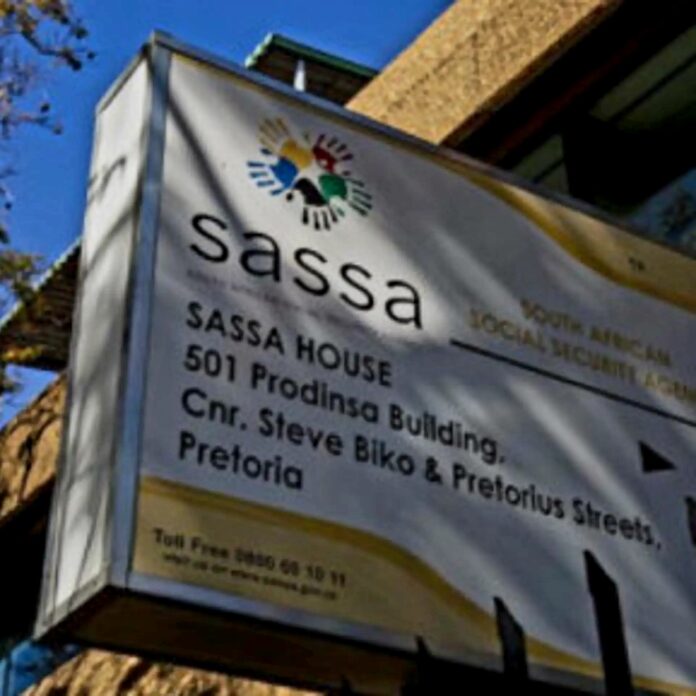In a landmark decision, the Gauteng High Court in Pretoria has ruled that the 2023 regulations governing the R370 Covid-19 Social Relief of Distress (SRD) grant are unconstitutional and invalid.
The ruling dismantles several restrictive measures imposed by the South African Social Security Agency (SASSA), which limited access to the grant for many eligible South Africans.
In simple terms, the courts declared it unconstitutional to deny applicants the R370 SRD grant solely because they receive irregular income. The court also ordered SASSA to allow in-person applications at its offices.
This ruling is a victory for vulnerable South Africans and a reminder of the state’s duty to provide social assistance.
As Judge presiding noted, “The state cannot shirk its responsibility to its most vulnerable citizens under the guise of procedural limitations.” This ruling restores fairness and equity to the SRD grant system and reaffirms the constitutional right to social security.”
Key findings of the court
- Online-only applications declared unlawful
The court invalidated the regulation that required grant applications to be submitted exclusively online. Recognising that many South Africans lack reliable internet access, the court ruled that SASSA must also allow in-person applications at its offices. - Unfair definitions of “Income” and “Financial Support” revised
The regulations had used overly strict definitions of “income” and “financial support,” which excluded many people who would otherwise qualify for the grant. The court clarified:- “Income” refers to money received regularly from formal or informal employment, business, or investments.“Financial support” refers to regular monetary benefits received by a person that are not considered income and to which the person has a legal right.
- Unjust appeal process overhauled
The court struck down SASSA’s rule barring unsuccessful applicants from providing new evidence during appeals. It ruled that applicants must be allowed to submit additional information to strengthen their case. - Bank verification practices unconstitutional
The regulation requiring applicants’ eligibility to be assessed solely through bank verification was deemed unconstitutional. This method unfairly excluded people with insufficient banking activity or irregular income streams.
Background of the legal challenge
The regulations were challenged by advocacy groups #PayTheGrants and the Institute for Economic Justice. They argued that the restrictive policies excluded many vulnerable South Africans from receiving the SRD grant, in violation of Section 27 of the Constitution, which guarantees the right to access social security.
The court supported their claims, stating that SASSA and the Minister of Social Development had implemented irrational and arbitrary measures that undermined the grant’s purpose.
Court’s constitutional nasis
The court emphasised that financial support from family members or others does not absolve the state of its constitutional obligation to provide social relief. It described the exclusionary policies as unfathomable, especially given the dire financial situation of many South Africans who rely on the Covid-19 SRD grant for survival.
What this means for grant applicants
- Wider access: Applicants will now have the option to apply for the grant at SASSA offices, not just online.
- Fairer criteria: The updated definitions of “income” and “financial support” will make more people eligible for the grant.
- Improved appeals: Applicants who are initially rejected can now present new evidence during the appeal process. (see the in full below)
Order
[166] In the result, the following order is made:
- It is declared that Regulation 3(2) of the Regulations Relating to COVID-19 Social Relief of Distress (GN3210 in GG46271 of 22 April 2022), introduced on 29 March 2023 (“the Regulations”), is unconstitutional and invalid to the extent that it provides for Social Relief of Distress (“SRD”) grant applications to be lodged on an electronic platform only.
- To remedy the defect in Regulation 3(2), the words “or at the offices of the Agency” shall be read in after the words “on the electronic platform”.
- It is declared that the word “income” in Regulation 1 means money received on a regular basis from formal or informal employment, business activities, or investments.
- It is declared that the words “financial support” in Regulation 1 means money received on a regular basis which benefits the recipient, that does not constitute income, and which the recipient has a legal right to receive.
- Regulation 2(3)(c)(i) is declared unconstitutional and invalid to the extent that it makes provision for “checks against databases that may indicate income or alternative financial assistance”.
- Regulation 2(3)(c)(ii) is declared unconstitutional and invalid to the extent that it directs SRD grant applicants’ applications to be assessed according to a proxy means test consisting of verification of insufficient means with banks.
- Regulation 6(c) is declared unconstitutional and invalid to the extent that it precludes unsuccessful applicants for the SRD grant from relying on new information or evidence in an appeal.
- To remedy the defect in Regulation 6(c), the word “not” after the word “may” is deleted from Regulation 6(c).

